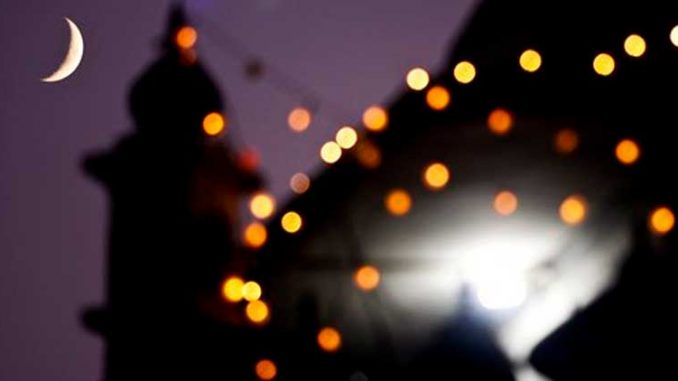
Doubt in the Break of Dawn
Even in the age of watches and alarm clocks, sometimes we
doubt whether it is time to stop eating. In this event, one should
eat and drink until he is certain and no longer in doubt about
the break of dawn. No decision on Islamic deeds should be
based on doubt. Allah (SWT) made the determining factor in
every affair certainty. He (SWT) says:
“And eat and drink until the white thread of
dawn appears to you distinct from it’s black
thread.”
(Al-Qur’an 2:184)
As I mentioned earlier, by “White thread” is meant the light of
the day. And “black thread” is meant darkness of the night.
Hence, the verse is explicit in that eating and drinking are per-
mitted until the doubt and uncertainty are removed from your
mind.
A man told Ibn Abbas, (raa), that he observed Sahuur and he
only stopped when he doubted about the break of dawn. Ibn
Abbas (raa) instructed him to eat as long as he doubted until he
doubts no more. Similar reports are attributed to many compan-
ions and scholars inferring from the above verse.
With the advance in time keeping technology, proliferation of
wrist watches, and alarm clocks, the possibility of uncertainty
is minimized, at least in the case of a believer who has a time
keeping device. These time pieces can be set, not only to sound
an alarm, but to call Al Adhan, recite some verse, or simply just
tell you to get up for sahuur.
In the heartland of the Muslim world, the states take the re-
sponsibility for public announcements with the firing of can-
nons, or radio, or television announcements. There has evolved
a special culture of Ramadan in many countries.
Working hours in some Muslim countries during Ramadan are
changed to night, virtually changing or shifting daytime activi-
ties to night. In some countries, the governments are not in-
volved in public announcements, but some families and volun-
teers over the years have taken the duty of wake-up calls by
going door to door, in groups and individually in an attempt to
wake up the city for Sahur.
It would be excellent if Muslims in non-Muslim countries try
to adjust their annual vacations during Ramadan, so as to allow
themselves the maximum use of the blessed month.
